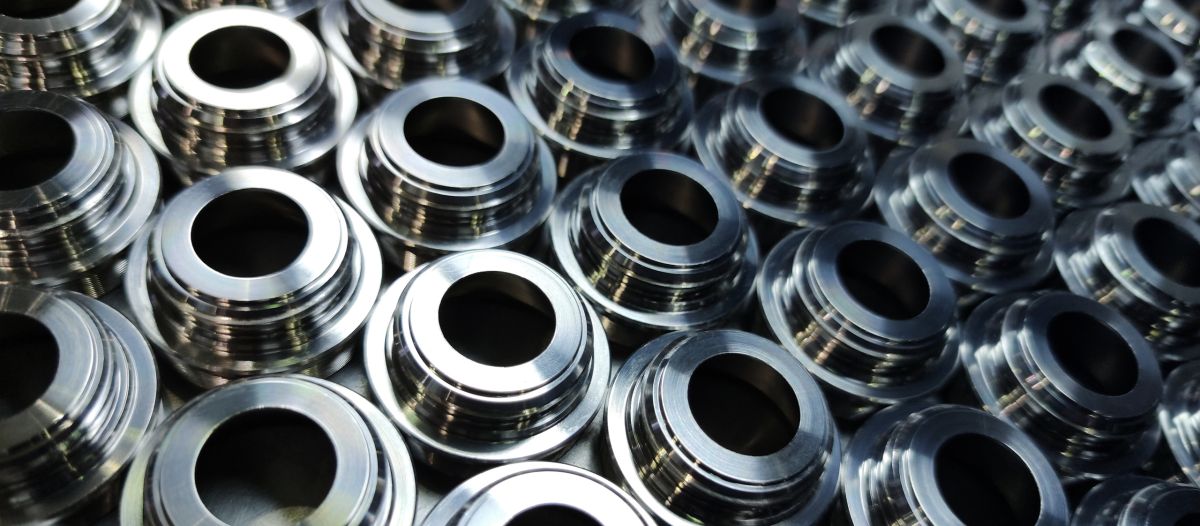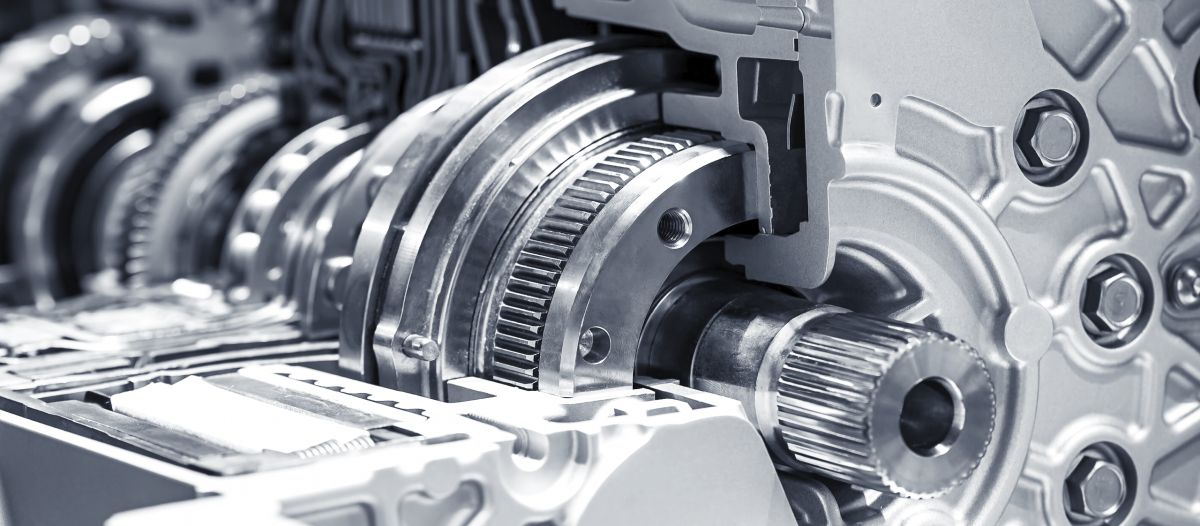Industrial solvent degreasing is a crucial process in many manufacturing industries, as it involves the use of chemical solvents to remove grease, oil, and other contaminants from metal parts and equipment. In this blog, we will take a deep dive into the world of industrial solvent degreasing, exploring the significance of this process in maintaining the cleanliness and quality of metal components. Join us to explore the essential elements of solvent-based products and how DST-CHEMICALS can help you overcome the challenges that come with solvent-based cleaners.
Table of Contents
What is solvent degreasing?
Solvent degreasing is a method of cleaning metal parts and equipment by using chemical solvents to dissolve and remove grease, oil, dirt, and other contaminants. This process is crucial in industrial settings where cleanliness and surface preparation are essential for maintaining product quality, performance, and safety.
The role of solvent degreasing in industrial cleaning is paramount. Grease, oil, and other contaminants can accumulate on metal parts during manufacturing, storage, or transportation, leading to issues such as decreased efficiency, product defects, and potential safety hazards. Solvent degreasing effectively eliminates these contaminants, allowing for proper surface preparation and ensuring that components are clean and ready for further processing or assembly.
Solvent degreasing is commonly used in industries such as automotive, aerospace, electronics, and metal fabrication, where metal parts need to meet stringent cleanliness standards.

Types of solvents for degreasing
Hydrocarbon-based solvents are a popular choice for industrial degreasing due to their effectiveness in removing oil, grease, and other contaminants from metal surfaces. These solvents are derived from petroleum and are known for their fast evaporation rates, low residue, and compatibility with a wide range of materials. Hydrocarbon solvents are commonly used in industries such as automotive, aerospace, and metal fabrication for degreasing applications.
One well-known type of hydrocarbon solvent is mineral spirits, which is a versatile solvent that can effectively dissolve grease and oil without leaving behind a residue. Mineral spirits are often used in degreasing operations where a strong solvent is required, but caution should be taken as they can be flammable and have some health risks associated with prolonged exposure.
Chlorinated solvents, on the other hand, have been widely used in industrial degreasing due to their excellent cleaning properties and fast evaporation rates. However, chlorinated solvents such as trichloroethylene and perchloroethylene are now facing increased scrutiny due to their environmental and health hazards. These solvents are known to be toxic, carcinogenic, and detrimental to the ozone layer, leading to regulatory restrictions on their use.
As a more environmentally friendly alternative, bio-based solvents offer a more eco-conscious solution for degreasing operations. These solvents are derived from renewable resources such as plants, fruits, or vegetables and are biodegradable, non-toxic, and low in VOC emissions. Water-based degreasers, like those offered by us, are a popular choice for manufacturers looking for a more efficient and gentle approach to cleaning while maintaining strong performance. These degreasers are safe to use, cost-effective, and can be used in a wide range of applications without compromising cleaning efficiency.

Water-based degreaser – an alternative to solvent degreasing
Water-based degreasers are cleaning solution that are primarily composed of water and other biodegradable ingredients, such as surfactants, detergents, de- and emulsifiers. Surfactants are compounds that lower the surface tension between two substances, allowing them to mix more easily. Detergents are cleaning agents that help to remove dirt and grease from surfaces. A demulsifier is a chemical additive used to separate emulsions, which are mixtures of two or more liquids that do not normally mix together. Demulsifiers help break down the emulsion, allowing the liquids to separate more easily. Emulsifiers are substances that help to mix two liquids that would normally separate, creating a stable mixture. These degreasers are designed to remove grease, oil, dirt, and other contaminants from a variety of surfaces, including metal, concrete, and plastic. Water-based degreasers are considered environmentally friendly alternatives to solvent-based degreasers because they are non-toxic, non-flammable, and have lower VOC emissions.
Advantages of water-based degreasers include:
-
Environmentally friendly: Water-based degreasers contain fewer hazardous chemicals compared to solvent-based degreasers. They have minimal impact on the environment beacuse they reduce the generation of hazardous waste. -
Safety: Water-based degreasers are safer to use than solvent-based degreasers, as they are non-toxic and non-flammable. This makes them ideal for use in indoor and confined spaces where ventilation may be limited. -
Cost-effective: Water-based degreasers are typically more cost-effective than solvent-based degreasers, as water is a readily available and inexpensive solvent. Additionally, water-based degreasers can be diluted with water to extend their use and reduce overall cleaning costs. -
Versatility: Water-based degreasers can be used on a wide range of surfaces, including metal and concrete. They are effective in removing grease, oil, and other contaminants from parts, equipment, floors, and other industrial surfaces.

Benefits of solvent-based cleaners
Solvent-based cleaners offer several advantages in terms of efficiency and effectiveness in cleaning applications. Some of the key benefits include:
Cleaning power: Solvent-based cleaners are effective at removing tough grease, oil, dirt, and contaminants from various surfaces, including metal, machinery, and equipment. They can penetrate and dissolve stubborn residues quickly, leading to faster cleaning times and improved results.
Quick drying: Solvent-based cleaners evaporate quickly, leaving surfaces clean and dry in a short amount of time. This can help reduce downtime and increase productivity in industrial settings where rapid cleaning is necessary.
Despite their efficiency and effectiveness, solvent-based cleaners come with environmental and health concerns due to their chemical composition. Some of the challenges associated with solvent use include:
Challenges of solvent-based cleaners
Environmental impact: Solvents can contribute to air and water pollution if not properly managed. The use of volatile organic compounds (VOCs) can contribute to smog formation and harm air quality. Improper disposal of solvent waste can also contaminate soil and water sources.
Health hazards: Solvents can pose health risks to workers exposed to them through inhalation, skin contact, or ingestion. Some solvents are toxic, carcinogenic, or can cause respiratory and skin irritation. Prolonged exposure to solvent vapors can lead to long-term health effects.
How to mitigate the risks associated with solvent-based cleaners?
Use in a well-ventilated area: Ensure that solvent-based cleaners are used in well-ventilated areas to minimize exposure to harmful fumes and vapors. Use exhaust fans or wear personal protective equipment, such as respirators, gloves, and eye protection.
Proper storage and handling: Store solvent-based cleaners in a well-ventilated, secure area away from sources of heat, sparks, or flames. Follow proper handling procedures, such as avoiding direct skin contact and using appropriate tools for dispensing and application.
Proper disposal: Dispose of solvent waste according to local regulations and guidelines. Avoid pouring solvent waste down drains or sewers and do not mix solvent waste with other chemicals. Consider recycling or reclaiming solvents when possible.
Consider alternatives: Explore alternative cleaning solutions, such as water-based cleaners or biodegradable solvents, that offer effective cleaning while minimizing environmental and health risks.
Questions and Answers
What kinds of solvents are used in degreasing?
The solvents used in degreasing can vary depending on the specific cleaning application. Common solvents used include mineral spirits, acetone, isopropyl alcohol, and perchloroethylene.
What is a solvent based degreaser?
A solvent-based degreaser is a cleaning product that contains organic solvents to dissolve and remove grease, oil, dirt, and contaminants from surfaces. These degreasers are commonly used in industrial and commercial cleaning applications.
What is best for degreasing?
The best solvents for degreasing will depend on the type of contaminants being removed and the solvents that is effective at dissolving the specific residues without causing damage to the material being cleaned.
What is the difference between solvent and water-based degreaser?
The main difference between solvent and water-based degreasers lies in their composition. Solvent-based degreasers contain organic solvents as the primary cleaning agent, while water-based degreasers use water as the primary solvent, sometimes supplemented with tencides or other cleaning agents. These help to reduce surface tension and improve cleaning efficiency by allowing the cleaner to penetrate and lift away dirt and grease.
Nick Bjerregaard
International Process & Technical Manager
Technical Manager at DST-CHEMICALS: 20 years of chemical industry experience, driving innovation, efficiency, and environmental sustainability.
Environmental, social and governance
At DST-CHEMICALS, sustainability is at the heart of everything we do. We engaged with key stakeholders, including our team of suppliers, to ensure we focused on what truly mattered. Ready to see the full picture? Keep an eye out for our ESG report, where we share the next steps in our journey to sustainability.

